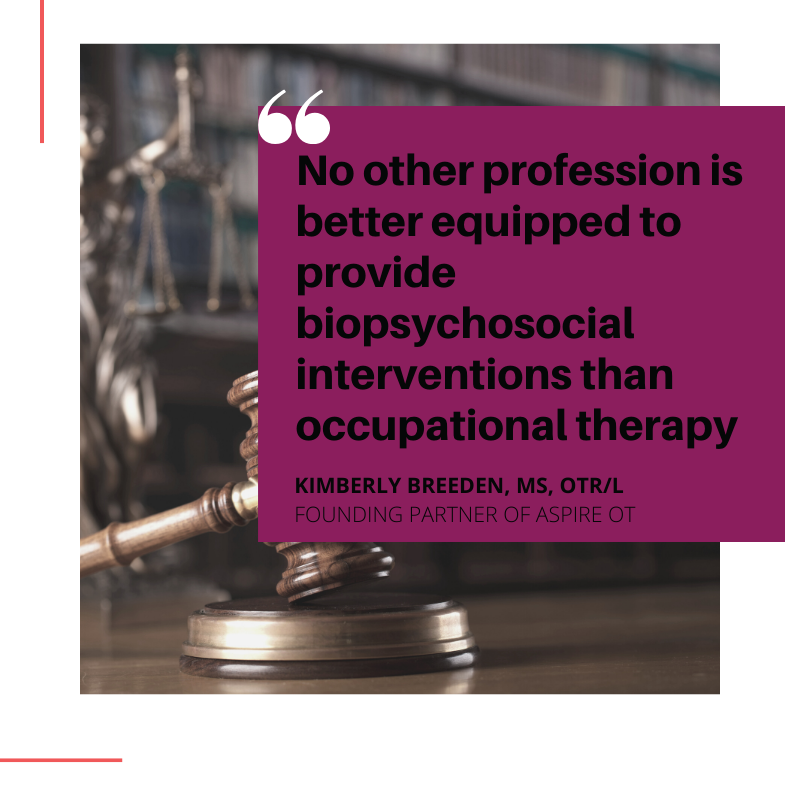
The passage of Tennessee’s Chronic Pain Bill recognizing occupational therapy as an alternative treatment for opioids for individuals with chronic pain was another positive step forward in improving the treatment of pain.
As an OT practitioner of 25 years, I can’t think of a treatment setting that I have not encountered individuals with pain. During most of my career, I experienced frustration that I could not do more to help relieve pain for my clients. I look back and truly regret that I did not understand pain as a biopsychosocial condition. That lack of understanding prevented me from maximizing my occupational therapy training to improve the quality of life of those with chronic pain. Once I improved my knowledge of pain physiology to the biological, psychological and social factors that impact pain, I empowered individuals with pain to manage their conditions better using skills I had already acquired through my OT training.
In my opinion, no other profession is better equipped to provide biopsychosocial interventions than occupational therapy.
I am so excited that Aspire OT is now providing our courses “Occupational Therapy’s Role in the Treatment of Chronic Pain” online in live webinars. Niccole and I are dedicated to helping other OT professionals gain a better understanding to the treatment of pain and the role they can play in promoting OT’s distinct value in combating the opioid crisis.
Kimberly Breeden, MS, OTR/L, Founding Partner
As an OT practitioner of 25 years, I can’t think of a treatment setting that I have not encountered individuals with pain. During most of my career, I experienced frustration that I could not do more to help relieve pain for my clients. I look back and truly regret that I did not understand pain as a biopsychosocial condition. That lack of understanding prevented me from maximizing my occupational therapy training to improve the quality of life of those with chronic pain. Once I improved my knowledge of pain physiology to the biological, psychological and social factors that impact pain, I empowered individuals with pain to manage their conditions better using skills I had already acquired through my OT training.
In my opinion, no other profession is better equipped to provide biopsychosocial interventions than occupational therapy.
I am so excited that Aspire OT is now providing our courses “Occupational Therapy’s Role in the Treatment of Chronic Pain” online in live webinars. Niccole and I are dedicated to helping other OT professionals gain a better understanding to the treatment of pain and the role they can play in promoting OT’s distinct value in combating the opioid crisis.
Kimberly Breeden, MS, OTR/L, Founding Partner
Write your awesome label here.
OT and Opioid Guidelines: Bridging Policy and Practice
You see the headlines. Maybe you even see or hear about how prescribing practices for opioids have changed. But have you thought about how all of this affects OT practice? Aspire OT wants you to feel prepared to tackle these important issues while staying within your scope of practice.
1.5 hours for only $15
1.5 hours for only $15
